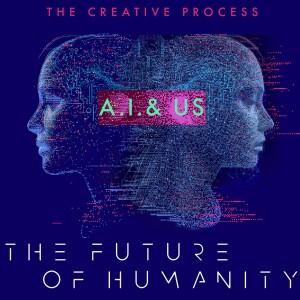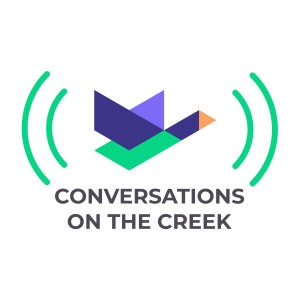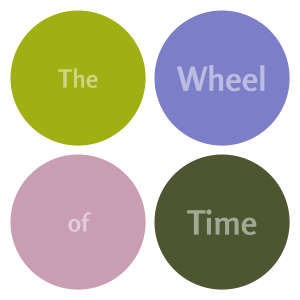

AI & The Future of Humanity: Artificial Intelligence, Technology, VR, Algorithm, Automation, ChatBPT, Robotics, Augmented Reality, Big Data, IoT, Social Media, CGI, Generative-AI, Innovation, Nanotec
https://thecreativeprocess.squarespace.com/ai-the-future-of-humanity?format=rssEpisode List

THE DREAM HOTEL with LAILA LALAMI
What happens when the state, with the pretext of protecting public safety, can detain indefinitely certain individuals whose dreams seem to indicate they may be capable of committing a crime? Set in a precarious world where sleep-enhancing devices and algorithms provide the tools and formulae for making one’s unconscious a witness to one’s possible waking life, this novel touches on a myriad of political, philosophical, and moral concerns as they particularly connect to issues of gender, race, ethnicity, privacy, and the security state.In this episode of Speaking Out of Place podcast Professor David Palumbo-Liu talks with award-winning novelist Laila Lalami about her new novel, The Dream Hotel. Laila Lalami is the author of five books, including The Moor’s Account, which won the American Book Award, the Arab-American Book Award, and the Hurston / Wright Legacy Award. It was on the longlist for the Booker Prize and was a finalist for the Pulitzer Prize in Fiction. Her novel The Other Americanswas a national bestseller, won the Joyce Carol Oates Prize, and was a finalist for the National Book Award in Fiction. Her books have been translated into twenty languages. Her essays have appeared in the Los Angeles Times, the Washington Post, The Nation, Harper’s, the Guardian, and the New York Times. She has been awarded fellowships from the British Council, the Fulbright Program, the Guggenheim Foundation, and the Radcliffe Institute at Harvard University. She lives in Los Angeles.www.palumbo-liu.comhttps://speakingoutofplace.comBluesky @palumboliu.bsky.socialInstagram @speaking_out_of_placeEpisode WebsitePhoto credit: Beowulf Sheehan

Examining Monuments, Memory & The History of White Supremacy IRVIN WEATHERSBY JR. - Highlights
“I'm hopeful for revolution. I'm optimistic. I want radical change. I think there's such a disinterest in education in America that it is sickening. I think we are repeating history. We are going through a cycle of fascism and greed, and I think we're going to see a lot of states collapse. As a result of that, I think people are going to be forced back to their primal needs and concerns, but I think they're going to be forced to think about what makes us human. How do we become more human? Because we've lost that. We've given it up to technology. How can we figure out what makes us a really powerful species again?”Irvin Weathersby Jr. is a Brooklyn-based writer and professor from New Orleans. He is the author of In Open Contempt: Confronting White Supremacy in Art and Public Space. His writing has been featured in LitHub, Guernica, Esquire, The Atlantic, EBONY, and elsewhere. He has earned an MFA from The New School, an MA from Morgan State University, and a BA from Morehouse College. He has received fellowships and awards from the Voices of Our Nations Arts Foundation, the Research Foundation of CUNY, the Bread Loaf Writers' Conference, the American Council of Learned Societies, and the Mellon Foundation.Episode Websitewww.creativeprocess.info/podInstagram:@creativeprocesspodcast

From Spy Thrillers to Police Dramas w/ Writer, Creator, Showrunner ALEXI HAWLEY
“There used to be a time when leading men were okay with falling down as a character. Harrison Ford in Indiana Jones is a prime example of that. Even going back to the fifties, they understood that failure and falling down, but getting back up, is an endearing quality. It's a universal human quality. We have gotten to a point in the last 10 or 15 years, or maybe longer, where leading men often want to win every fight. It’s in their contract: "I have to win every fight" or "I can't fail" or "I can't fall down." It's just such a mistake because the audience roots for you more if they see you fail and then get back up again. Noah is totally comfortable playing that character who's just trying to figure it out on the fly. Sometimes, he gets it wrong, but he's never going to give up. You can really feel that coming off the screen.”Alexi Hawley is the creator of ABC’s The Rookie, starring Nathan Fillion, and Netflix's The Recruit, an espionage drama starring Noah Centineo that, in season two, explores the legal defense tactic 'graymail'. The Rookie, now in its seventh season, takes a look at aspects of policing often overlooked by TV procedurals. Hawley discusses the positive role police can play in communities and how he found his own autodidactic path to becoming a television showrunner. He was previously the executive producer and co-showrunner of Castle and The Following, and recently created the upcoming Hulu drama The Envoy which is inspired by journalist and producer Adam Ciralsky’s June 2024 Vanity Fair story about Roger Carstens and his team at the State Department who have brought home 70 American hostages during the past four years.Episode Websitewww.creativeprocess.info/podInstagram:@creativeprocesspodcast

JARON LANIER on Tech, Music, Creativity & Who Owns the Future - Highlights
“What I meant when I said there is no AI is that I don't think we serve ourselves well when we put our own technology up as if it were a new God that we created. I think we confuse ourselves too easily. This goes back to Alan Turing, the main founder of computer science, who had this idea of the Turing test. In the test, you can't tell whether the computer has gotten more human-like or the human has gotten more computer-like. People are very prone to becoming more computer-like. When we're on social media, we let ourselves be guided by the algorithms, so we start to become dumb in the way the algorithms want us to. You see that all the time. It's really degraded our psychologies and our society.”Jaron Lanier is a pioneering technologist, writer, and musician, best known for coining the term “Virtual Reality” and founding VPL Research, the first company to sell VR products. He led early breakthroughs in virtual worlds, avatars, and VR applications in fields like surgery and media. Lanier writes on the philosophy and economics of technology in his bestselling book Who Owns the Future? and You Are Not a Gadget. His book Dawn of the New Everything: Encounters with Reality and Virtual Reality is an inventive blend of autobiography, science writing, and philosophy. Lanier has been named one of TIME’s 100 most influential people and serves as Prime Unifying Scientist at Microsoft’s Office of the CTO—aka “Octopus.” As a musician, he’s performed with Sara Bareilles, Philip Glass, T Bone Burnett, Laurie Anderson, Jon Batiste, and others.Episode Websitewww.creativeprocess.info/podInstagram:@creativeprocesspodcastEpisode Websitewww.creativeprocess.info/podInstagram:@creativeprocesspodcast

AI, Virtual Reality & Dawn of the New Everything w/ JARON LANIER, VR Pioneer, Musician, Author
“AI is obviously the dominant topic in tech lately, and I think occasionally there's AI that's nonsense, and occasionally there's AI that's great. I love finding new proteins for medicine and so on. I don't think we serve ourselves well when we put our own technology up as if it were a new God that we created. I think we're really getting a little too full of ourselves to think that. This goes back to Alan Turing, the main founder of computer science, who had this idea of the Turing test. In the test, you can't tell whether the computer has gotten more human-like or the human has gotten more computer-like. People are very prone to becoming more computer-like. When we're on social media, we let ourselves be guided by the algorithms, so we start to become dumb in the way the algorithms want us to. You see that all the time. It's really degraded our psychologies and our society.”Jaron Lanier is a pioneering technologist, writer, and musician, best known for coining the term “Virtual Reality” and founding VPL Research, the first company to sell VR products. He led early breakthroughs in virtual worlds, avatars, and VR applications in fields like surgery and media. Lanier writes on the philosophy and economics of technology in his bestselling book Who Owns the Future? and You Are Not a Gadget. His book Dawn of the New Everything: Encounters with Reality and Virtual Reality is an inventive blend of autobiography, science writing, and philosophy. Lanier has been named one of TIME’s 100 most influential people and serves as Prime Unifying Scientist at Microsoft’s Office of the CTO—aka “Octopus.” As a musician, he’s performed with Sara Bareilles, Philip Glass, T Bone Burnett, Laurie Anderson, Jon Batiste, and others.Episode Websitewww.creativeprocess.info/podInstagram:@creativeprocesspodcastPhoto credit: Michael Springer
Create Your Podcast In Minutes
- Full-featured podcast site
- Unlimited storage and bandwidth
- Comprehensive podcast stats
- Distribute to Apple Podcasts, Spotify, and more
- Make money with your podcast












